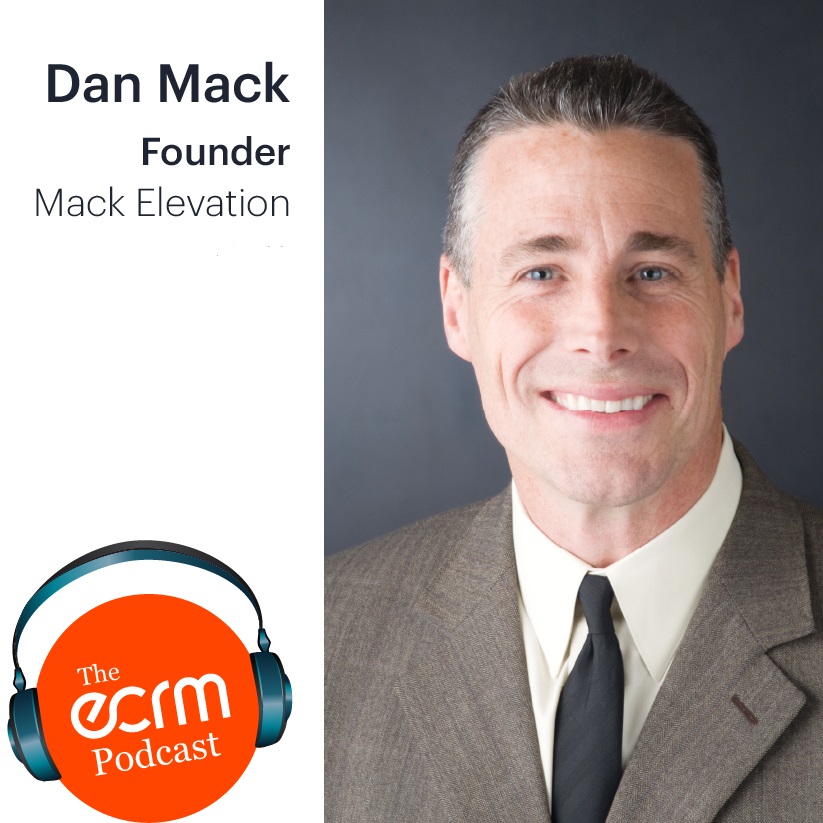The New Retail Mindset & What it Means for Suppliers 6/11/2020
 One impact of the Covid-19 pandemic is that it has changed the mindset of retailers and the way in which they view thier supplier partnerships. They have new expectations when it comes to supply chain capabilities, innovation, and consumer engagement, and trust is now more important than ever.
One impact of the Covid-19 pandemic is that it has changed the mindset of retailers and the way in which they view thier supplier partnerships. They have new expectations when it comes to supply chain capabilities, innovation, and consumer engagement, and trust is now more important than ever.
During my interview with Dan Mack, Founder & Managng Director of Mack Elevation, we discuss this new mindset of today's retailers and provide some insights on how suppliers can best engage with them moving forward.
Dan is a strategist, advisor and performance coach to numerous companies in the consumer package goods industry. He hosts regular thought leadership events bringing together retailers and suppliers to discuss higher level partnerships and the future of the industry. He researches and advises executives on the practices of elite growth companies in his first book, Dark Horse: How Challenger Companies Rise to Prominence.
Mack was a sales and training leader at GlaxoSmithKline, served as Vice President of Sales at GOJO Industries (the creator of PURELL) and Vice President of Sales at Dentek Oral Care. He as a passion for coaching leaders on creating high performing sales cultures.
Listen to the full podcast interview (view video below)
ECRM: Obviously over the last three months, there's been a pivot on the retail side of the industry to a focus on safety and supply chain, and it's really diverted the attention of the retailers to some of the conversations they may be having with suppliers in the marketplace. What are you seeing and hearing from the supplier community?
Mack: I think there's a ton of content out there these days about how retail is changing, how the store is changing, how digital is accelerating and transforming everything. I heard a mind-blowing fact recently: It took 25 years for 15 percent of the all commodity revenue to being done online. And in 75 days, it went up to 25 percent. That level of acceleration is significant, but it’s also the mindset that's shifting. So sales organizations, marketing organizations, how they engage with retailers, how they think through their solution, how they think through the value they're creating, that's changed too, because the mindset of the retailer has changed.
Retail leaders are saying they are in an "essential mindset," and assessing everything as if it's the first time they are looking at it. They also mention that since they are selling so many essential goods digitally and out in front of the store for consumers to pick up, their yield is going down. Profit is going down, so they're selling a lot of goods, but the margins are lower, and that gap will need to be filled at some point. What that means is if you're not an essential product, you better make sure you're a wickedly profitable product moving into the future.
Retailers are also looking for thinkers, not just salespeople. They are looking for people who can create. They are also looking for people who can fix things. I'll give you an example. There's two broker partners I know, one's a boutique specialist, and the other is a national operator. Their mindset now is such that any question a major retailer asks them – even if it's an area that they don't typically focus on – they're going to fix that problem. That mindset is they fix things and that's why they're received so incredibly well by the retailer community. I think that's a clue for manufacturers. Can you fix things? And I think that's the psychology of most of the people we call on now. It's not about just selling your products. It's about, can you fix things that you're not even prepared at this point to fix?
Now if you are selling a product to a retailer, you’ve got to deliver a shopping trip, meaning somebody hopefully is walking in that store, looking for you, not just looking at the category and making a decision on what's in the category. The second thing is, are you bringing in a new customer? Are you either bringing in somebody who's normally in another retailer or buying online? So I think the mindset of the retailer is they're looking for partners who have an outward focus, not an inward focus. And companies and leaders who represent themselves that way, especially in this moment, they have a high trust and they protect that trust.
Wayne, I know there's probably nobody in America that spends more time with retailers than you. Tell me about some key areas from a trust perspective you can't violate with them.
ECRM: Over the last couple of months, there have been some core themes that I've been hearing. One area of focus is on supplier's supply chain capabilities. How can you ensure that those supply chain capabilities don't break down and really understanding not only your supply chain, but the supply chain of their suppliers. We're really talking about downstream consideration of the entire supply chain. Also, understanding your manufacturing capacities. Can you produce if you have a surge in demand? Do you own your own plants, or do you outsource your business? And there's going to be a big focus towards localization and products made in United States.
The other thing is that in a time of economic stress, it's important that consumers understand your brand. During recessionary periods, consumers tend to lean into bigger well-established brands. So I think for those smaller brands, it's going to be important for them. How well are they known to the consumer? How strong is your social media footprint? Do you have the right content to engage the consumer? It’s also important to focus on your innovation pipeline? I believe they will be a surge of innovation coming out of this, especially around wellness.
Mack: I agree. If you understand what's on the consumer’s mind, if you understand that we're in almost like a necessity economy, you have to be creating products that are necessary and solutions that are necessary. The big spot is this is still a business of human beings, flesh and blood talking to each other. Trust. And when that's violated, you could be the most digitally agile company in the world, and you will fail if I don't trust you.
To this point, I believe that being present is the great separator. In a world now where you're doing digital calls, you have to be incredibly prepared, incredibly concise and thoughtful and present. You need to be picking up the nonverbal cues that are going on, which are very difficult to pick up digitally. When you're looking at a screen, you're not seeing a lot of things and you're not being able to pick up on what they want or whether they're with you and whether there's other things on their mind. So you have to be present.
Self-awareness is number two. Ninety-five percent of people think they're self-aware, but in reality that number is closer to 10 percent. So when I think of companies that are self aware, they're not just selling their goods, they are selling their vision. They're uncovering unstated needs. The third thing is, they get to the most vital insights. So in this world now in every category there's a new behavior going on, that's different in every category. Haircare products are very different than sanitizers right now. Beauty is very different than oral health. There's different dynamics going on. So you need to uncover what is the vital insight that's changed in the game with the consumer in your category and how it's affecting the category.
And then I think the last behavior is this idea that people are feeling so overwhelmed, especially our retail partners, and they want innovation. So can you co-develop ideas with them now because that's a really nice break from the mundane of being on 12 hours of Zoom calls each day. We have be more empathetic. We have to be more holistic. That's the future partnerships, that retailers want to do business with companies with a purpose and soul and that they trust. Even before the product, you have to get that right. And you have to protect that.
.jpg)
